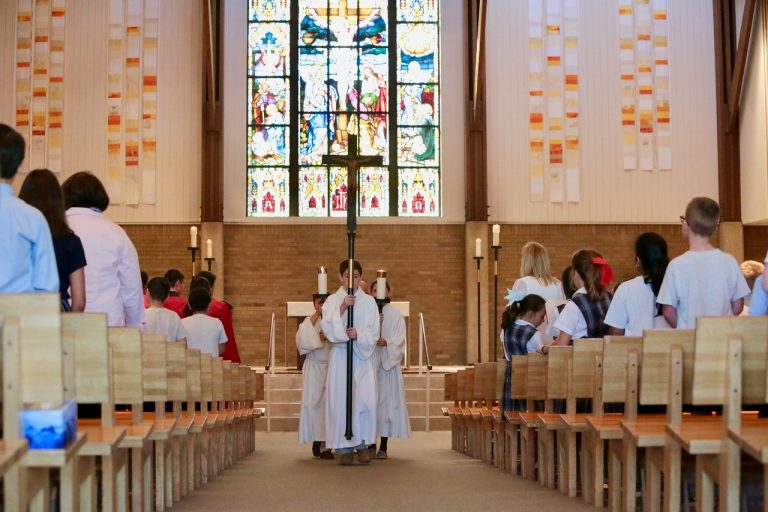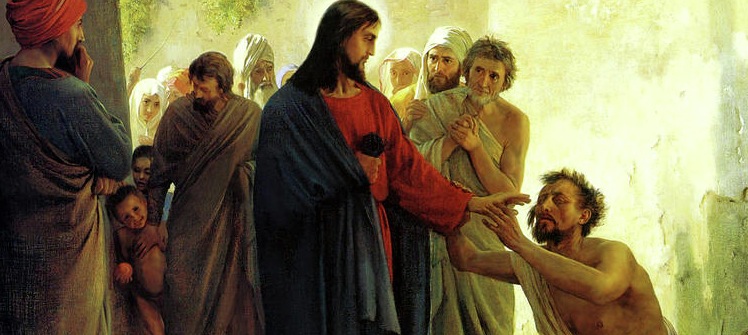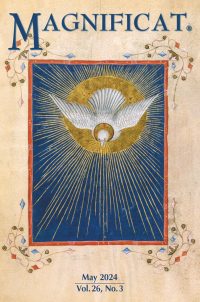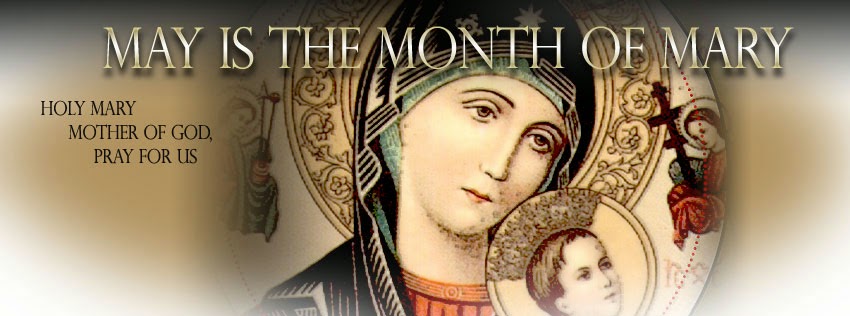Mark CHAP. 10
10:46–52
46. And they came to Jericho: and as he went out of Jericho with his disciples and a great number of people, blind Bartimæus, the son of Timæus, sat by the highway side begging.
47. And when he heard that it was Jesus of Nazareth, he began to cry out, and say, Jesus, thou Son of David, have mercy on me.
48. And many charged him that he should hold his peace: but he cried the more a great deal, Thou Son of David, have mercy on me.
49. And Jesus stood still, and commanded him to be called. And they call the blind man, saying unto him, Be of good comfort, rise; he calleth thee.
50. And he, casting away his garment, rose, and came to Jesus.
51. And Jesus answered and said unto him, What wilt thou that I should do unto thee? The blind man said unto him, Lord, that I might receive my sight.
52. And Jesus said unto him, Go thy way; thy faith hath made thee whole. And immediately he received his sight, and followed Jesus in the way.
JEROME. The name of the city agrees with the approaching Passion of our Lord; for it is said, And they came to Jericho. Jericho means moon or anathema; but the failing of the flesh of Christ is the preparation of the heavenly Jerusalem. It goes on: And as he went out of Jericho with his disciples, and a great number of people, blind Bartimæus, the son of Timæus, sat by the wayside begging.
BEDE. (ubi sup.) Matthew says, that there were two blind men sitting by the wayside, who cried to the Lord, and received their sight; but Luke relates that one blind man was enlightened by Him, with a like order of circumstances, as He was going into Jericho; where no one, at least no wise man, will suppose that the Evangelists wrote things contrary to one another, but that one wrote more fully, what another has left out. We must therefore understand that one of them was the more important, which appears from this circumstance, that Mark has related his name and the name of his father.
AUGUSTINE. (de Con. Evan. ii. 65) It is for this reason that Mark wished to relate his case alone, because his receiving his sight had gained for the miracle a fame, illustrious in proportion to the extent of the knowledge of his affliction. But although Luke relates a miracle done entirely in the same way, nevertheless we must understand that a similar miracle was wrought on another blind man, and a similar method of the same miracle. It goes on: And when he heard that it was Jesus of Nazareth, he began to cry out, and say, Jesus, thou Son of David, have mercy upon me.
PSEUDO-CHRYSOSTOM. (Vict. Ant. e Cat. in Marc.) The blind man calls the Lord, the Son of David, hearing the way in which the passing multitude praised Him, and feeling sure that the expectation of the prophets was fulfilled. There follows: And many charged him that he should hold his peace.t
ORIGEN. (in Matt. tom. xvi. 13) As if he said, Those who were foremost in believing rebuked him when he cried, Thou Son of David, that he might hold his peace, and cease to call Him by a contemptible name, when he ought to say, Son of God, have pity upon me. He however did not cease; wherefore it goes on: But he cried the more a great deal, Thou Son of David, have mercy upon me; and the Lord heard his cry; wherefore there follows: And Jesus stood still, and commanded him to be called. But observe, that the blind man, of whom Luke speaks, is inferior to this one; for neither did Jesus call him, nor order him to be called, but He commanded him to be brought to Him, as though unable to come by himself; but this blind man by the command of our Lord is called to Him. Wherefore it goes on: And they call the blind man, saying unto him, Be of good comfort, rise, he calleth thee; but he casting away his garment, comes to Him. It goes on: And he casting away his garment, rose, and came to Jesus. Perchance, the garment of the blind man means the veil of blindness and poverty, with which he was surrounded, which he cast away and came to Jesus; and the Lord questions him, as he is approaching. Wherefore there follows: And Jesus answered and said unto him, What will thou that I should do unto thee.
BEDE. (ubi sup.) Could He who was able to restore sight be ignorant of what the blind man wanted? His reason then for asking is that prayer may be made to Him; He puts the question, to stir up the blind man’s heart to pray.
CHRYSOSTOM. (Hom. in Matt. 66) Or He asks, lest men should think that what He granted the man was not what he wanted. For it was His practice to make the good disposition of those who were to be cured known to all men, and then to apply the remedy, in order to stir up others to emulation, and to shew that he who was to be cured was worthy to obtain the grace. It goes on: The blind man said unto him, Lord, that I may receive my sight.
BEDE. For the blind man looks down upon every gift except light, because, whatever a blind man may possess, without light he cannot see what he possesses.
PSEUDO-JEROME. But Jesus, considering his ready will, rewards him with the fulfilment of his desire.
ORIGEN. (ubi sup.) Again, it is more worthy to say Rabboni, or, as it is in other places, Master, than to say Son of David; wherefore He gives him health, not on his saying, Son of David, but when he said Rabboni. Wherefore there follows: And Jesus said unto him, Go thy way; thy faith hath made thee whole. And immediately he received his sight, and followed him in the way.
THEOPHYLACT. The mind of the blind man is grateful, for when he was made whole, he did not leave Jesus, but followed Him.
BEDE. (ubi sup.) In a mystical sense, however, Jericho, which means the moon, points out the waning of our fleeting race. The Lord restored sight to the blind man, when drawing near to Jericho, because coming in the flesh and drawing near to His Passion, He brought many to the faith; for it was not in the first years of His Incarnation, but in the few years before He suffered, that He shewed the mystery of the Word to the world.
PSEUDO-JEROME. But the blindness in part, brought upon the Jews, will in the end be enlightened when He sends unto them the Prophet Elias. (Rom. 11:25)
BEDE. (ubi sup.) Now in that on approaching Jericho, He restored sight to one man, and on quitting it to two, He intimated, that before His Passion He preached only to one nation, the Jews, but after His resurrection and ascension, through His Apostles He opened the mysteries both of His Divinity and His Humanity to Jews and Gentiles. Mark indeed, in writing that one received his sight, refers to the saving of the Gentiles, that the figure might agree with the salvation of those, whom he instructed in the faith; but Matthew, who wrote his Gospel to the faithful among the Jews, because it was also to reach the knowledge of the Gentiles, fitly says that two received their sight, that He might teach us that the grace of faith belonged to each people. Therefore, as the Lord was departing with His disciples and a great multitude from Jericho, the blind man was sitting, begging by the way-side; that is, when the Lord ascended into heaven, and many of the faithful followed Him, yea when all the elect from the beginning of the world entered together with Him the gate of heaven,u, presently the Gentile people began to have hope of its own illumination; for it now sits begging by the wayside, because it has not entered upon and reached the path of truth.
PSEUDO-JEROME. The people of the Jews also, because it kept the Scriptures and did not fulfil them, begs and starves by the wayside; but he cries out, Son of David, have mercy upon me, because the Jewish people is enlightened by the merits of the Prophets. Many rebuke him that he may hold his peace, that is, sins and devils restrain the cry of the poor; and he cried the more, because when the battle waxes great, hands are to be lifted up with crying to the Rock of help, that is, Jesus of Nazareth.
BEDE. Again, the people of the Gentiles, having heard of the fame of the name of Christ, sought to be made a partaker of Him, but many spoke against Him, first the Jews, then also the Gentiles, lest the world which was to be enlightened should call upon Christ. The fury of those who attacked Him, however, could not deprive of salvation those who were fore-ordained to life. And He heard the blind man’s cry as He was passing, but stood when He restored his sight, because by His Humanity He pitied him, who by the power of His Divinity has driven away the darkness from our mind; for in that Jesus was born and suffered for our sakes, He as it were passed by, because this action is temporal; but when God is said to stand, it means, that, Himself without change, He sets in order all changeable things. But the Lord calls the blind man, who cries to Him, when He sends the word of faith to the people of the Gentiles by preachers; and they call on the blind man to be of good cheer and to rise, and bid him come to the Lord, when by preaching to the simple, they bid them have hope of salvation, and rise from the sloth of vice, and gird themselves for a life of virtue. Again, he throws away his garment and leaps, who, throwing aside the bands of the world, with unencumbered pace hastens to the Giver of eternal light.
PSEUDO-JEROME. Again, the Jewish people comes leaping, stripped of the old man, as a hart leaping on the mountains, that is, laying aside sloth, it meditates on Patriarchs, Prophets, and Apostles on high, and raises itself to heights of holiness. How consistent also is the order of salvation. First we heard by the Prophets, then we cry aloud by faith, next we are called by Apostles, we rise up by penitence, we are stripped of our old garment by baptism, and of our choice we are questioned. Again, the blind man when asked requires, that he may see the will of the Lord.
BEDE. (ubi sup.) Therefore let us also imitate him, let us not seek for riches, earthly goods, or honours from the Lord, but for that Light, which we alone with the Angels can see, the way to which is faith; wherefore also Christ answers to the blind man, Thy faith hath saved thee. But he sees and follows who works what his understanding tells him is good; for he follows Jesus, who understands and executes what is good, who imitates Him, who had no wish to prosper in this world, and bore reproach and derision. And because we have fallen from inward joy, by delight in the things of the body, He shews us what bitter feelings the return thither will cost us.
THEOPHYLACT. Further, it says that he followed the Lord in the way, that is, in this life, because after it all are excluded who follow Him not here, by working His commandments.
PSEUDO-JEROME. Or, this is the way of which He said, I am the Way, the Truth, and the Life. This is the narrow way, which leads to the heights of Jerusalem, and Bethany, to the mount of Olives, which is the mount of light and consolation.










